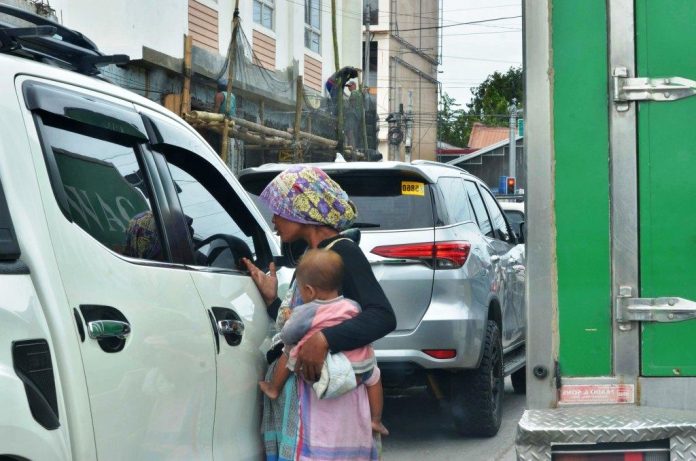
ILOILO City – House Deputy Speaker Mujiv Hataman of Basilan criticized the city government’s plan to expel Badjaos from Iloilo. “Our Constitution grants every Filipino citizen the liberty of movement within any part of the country. This is a basic human right that knows no gender, ethnicity or even social standing,” he said.
The city government under Mayor Jerry Treñas intends to round up mendicant Badjaos and send them back to Sulu via a Philippine Air Force C-130 plane.
“I urge the Iloilo City government to act with caution and care when dealing with the Badjaos, and that it should ensure that the rights and welfare of our citizens are protected and preserved,” said Hataman, the last governor of the Autonomous Region in Muslim Mindanao.
Last year, the city government under then mayor Jose Espinosa III herded over 50 Badjao beggars to a ship and transported them back to Mindanao. It did the same to nearly 80 Badjaos in 2017.
“Why send them back in a manner that strips them of their dignity? And simply sending mendicants away from its area of jurisdiction does not address the underlying problems that brought these Badjao people to Iloilo City – and other urban centers for that matter – in the first place,” said Hataman.
Strictly speaking, according to Hataman, one could not “deport” Filipinos from one part of the country to another.
“Perhaps they mean to apply the long-standing ‘Balik-Probinsya’ program of the government. Deportation is only for foreigners, usually those who have violated the country’s laws. And the ‘Balik Probinsiya’ program is not mandatory but voluntary on the part of those who are encouraged to return to their provinces,” he stressed.
Thus, said Hataman, the return of the Badjaos to Sulu, or their relocation elsewhere, “should be voluntary.”
“The Badjaos should agree to go back to Sulu or to relocate anywhere they are taken to. Proper coordination between Iloilo City and the receiving local government should be maintained to ensure that they arrive safe and secure,” said Hataman.
Section 6, Article III (Bill of Rights) of the 1987 Philippine Constitution reads: “The liberty of abode and of changing the same within the limits prescribed by law shall not be impaired except upon lawful order of the court. Neither shall the right to travel be impaired except in the interest of national security, public safety, or public health, as may be provided by law.”
Also called “sea gypsies”, many Badjaos were displaced by decades of conflict in Mindanao. As indigenous people whose lives are tied closely to the seas on the Sulu coast, these Badjao live on coastal areas and make their livelihood from the Sulu sea.
Most of them do not have access to healthcare, government social services or education and these make them vulnerable to exploitation from syndicates seeking to make beggars of them in cities, said Hataman.
“The saying goes that beggars can’t be choosers. These Badjao, like other indigenous people (IP) who are exploited into mendicancy, do not choose to beg. They are made into beggars by unscrupulous groups that prey on them. They need the protection of our laws through proper enforcement and dismantling the syndicates that prey on them,” he stressed.
Hataman urged local government units, the Department of Social Welfare and Development, the Philippine National Police and other national government agencies to provide IPs like the Badjaos with long-term solutions that protect their dignity and their rights as human beings and as citizens of the Philippines.
“We need to act with compassion, understanding, efficiency and integrity to stop the exploitation of our people,” said Hataman.
Mendicancy is a national problem, said but “we can always find solutions that do not violate human rights and reduce human dignity to almost nothing.”/PN



